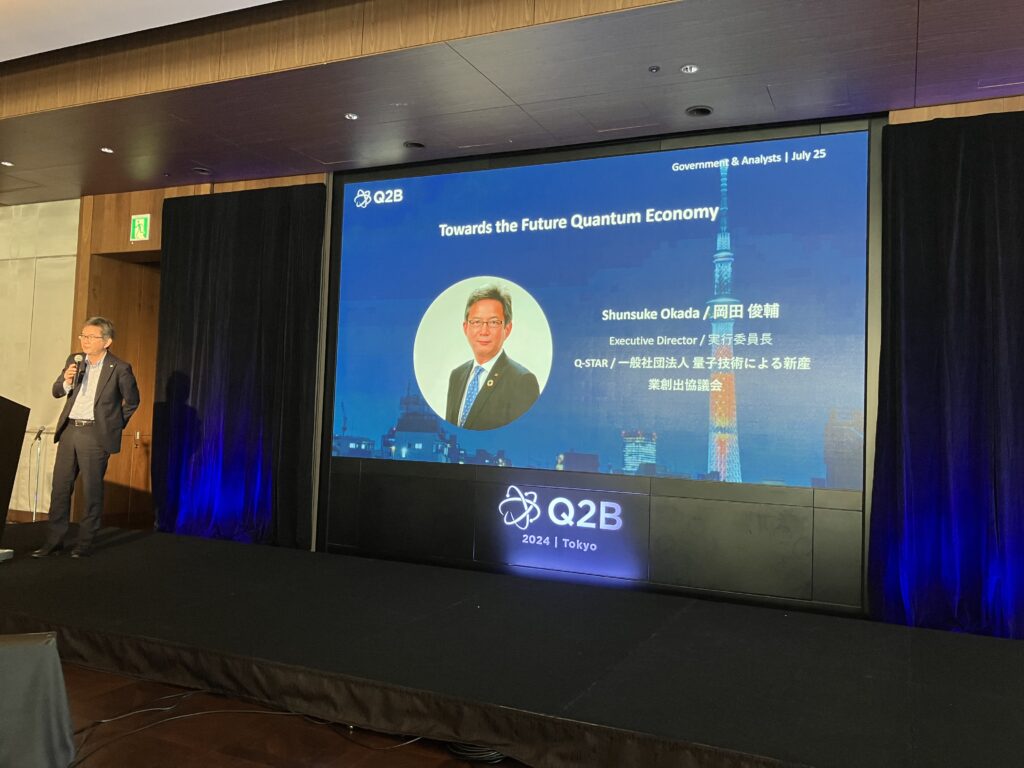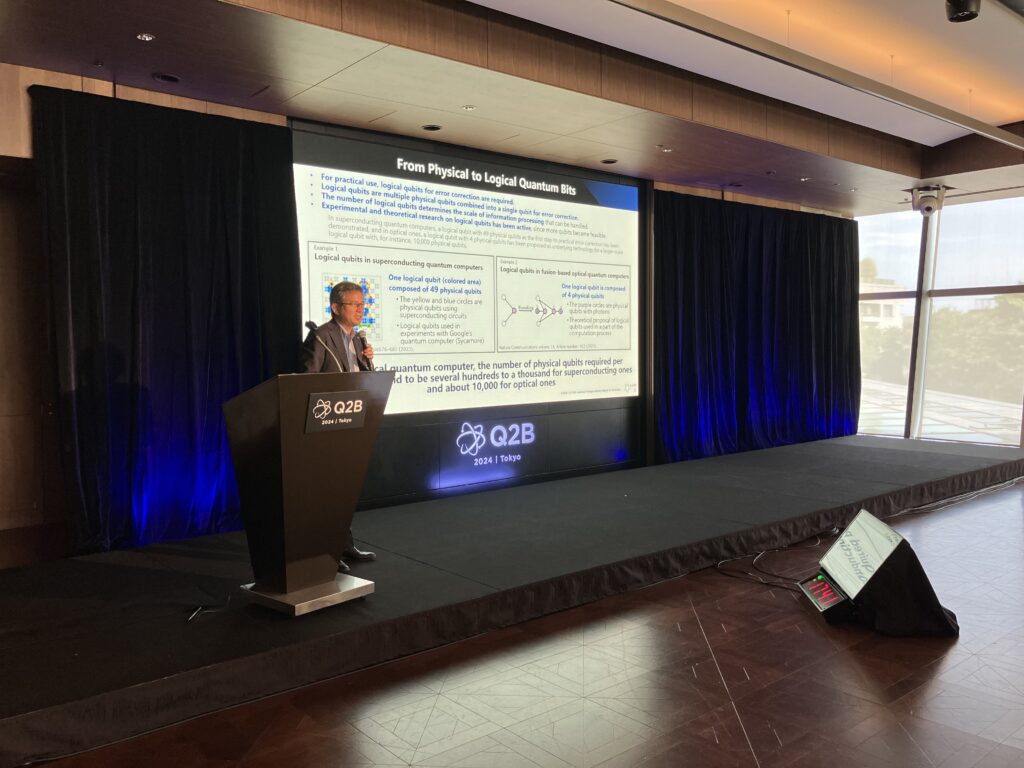July 24 (Wed.) – July 25 (Thu.), 2024
Venue: Grand Hyatt Tokyo
Organized by QCWARE


Summary of the Lecture by Q-STAR Executive Committee Chairperson, Mr. Okada (Afternoon of the 25th)
■ About Q-STAR
Q-STAR is an organization dedicated to the industrial development of quantum technology. It covers a wide range of fields such as quantum computing, sensing, materials, and communications, with the goal of creating a society by 2030 where 10 million people use quantum technology without even realizing it. One of the key features of Q-STAR is that more than half of its members are user companies, not just vendors, which allows for active discussions from a user perspective. This is a rare initiative globally, where discussions are led by user companies. Additionally, Q-STAR is focused on supporting startups, with 17 companies currently participating as associate members, and this number is expected to grow.
The daily operations of Q-STAR are handled by its executive committee, which focuses on communication with international organizations, standardization, intellectual property, and public relations. The organization has established working groups based on different categories of quantum technology to discuss various use cases. These discussions are not limited to theoretical dialogue; in collaboration with G-QuAT, Q-STAR is conducting real-world demonstrations to explore practical applications of quantum technology while sharing information both domestically and internationally. In May of this year, Q-STAR established the “SDGs Promotion Working Group through Quantum Technology,” aiming to actively address how quantum technology can help solve global challenges.
In areas related to quantum computing, various technologies are being used. Among them, the Ising model is a strength for Japan. Several Japanese companies are providing engines that simulate quantum states on existing computers, enabling the start of solving social challenges. This is a unique characteristic of Japan. Q-STAR believes that even as current simulators are gradually replaced by quantum computers in the future, Japan’s early use of simulators to solve problems, along with the insights gained from this, will serve as a key differentiator on the global stage.
■ Deepening Domestic and International Collaboration
Q-STAR is strengthening its collaboration with G-QuAT as part of efforts to implement quantum technology in society, and the signing of a joint research agreement is a significant milestone. One of the key factors behind this agreement is the recognition of the quantum category in the Cabinet Office’s SIP (Strategic Innovation Promotion Program) Phase 3, along with the allocation of funding. Plans are underway to conduct use case demonstrations, develop and implement educational programs, and build an ecosystem to support startup growth and market entry.
Additionally, Q-STAR is focusing on globalization. It can be challenging for many quantum-related companies to maintain continuous global communication. Still, Q-STAR has experienced firsthand the importance of functioning as a powerful hub through its daily activities.
Last January 31, ICQIA was launched by four organizations: QED-C in the US, QIC in Canada, QuIC in Europe, and Q-STAR. The most significant achievement of ICQIA is the development of a supply chain map. The most significant achievement of ICQIA is the development of a supply chain map, which defines what quantum-related organizations in each country are developing, what technologies they have, what areas of quantum technology they fall into, and how they are being utilized, and places them on the supply chain map to create a vessel for international collaboration. The supply chain map will set the standard for global conversations to take place, deepen international collaboration, and encourage industrialization.
■ Japan’s Contribution to Building a Global Ecosystem
Currently, there are various types of quantum computers emerging, but it has yet to be determined which one will become the mainstream. In response, Q-STAR has been focusing on the need for a software platform that can support all types of quantum computers and has been seriously discussing this for the past year. We plan to implement this platform in G-QuAT as well, aiming to create an environment accessible to everyone.
Additionally, Q-STAR has been working on examining the quantum computer software stack diagram. The core of this diagram is the middleware layer, which organizes problems and generates solutions based on the type of quantum computer. At present, we are focusing on documenting these specifications.
Japan leads the world in the field of Ising machines, with several examples of real-world problem-solving achievements. Q-STAR is committed to promoting the ability of Ising machines, a strength of Japan, to solve problems globally, while also driving the development of a global ecosystem and supporting the industrialization of quantum technology. We will accelerate efforts to realize a quantum society by leveraging Japan’s strengths and unique capabilities.
Related Link
Accelerating Social Implementation through Software Platform Development
